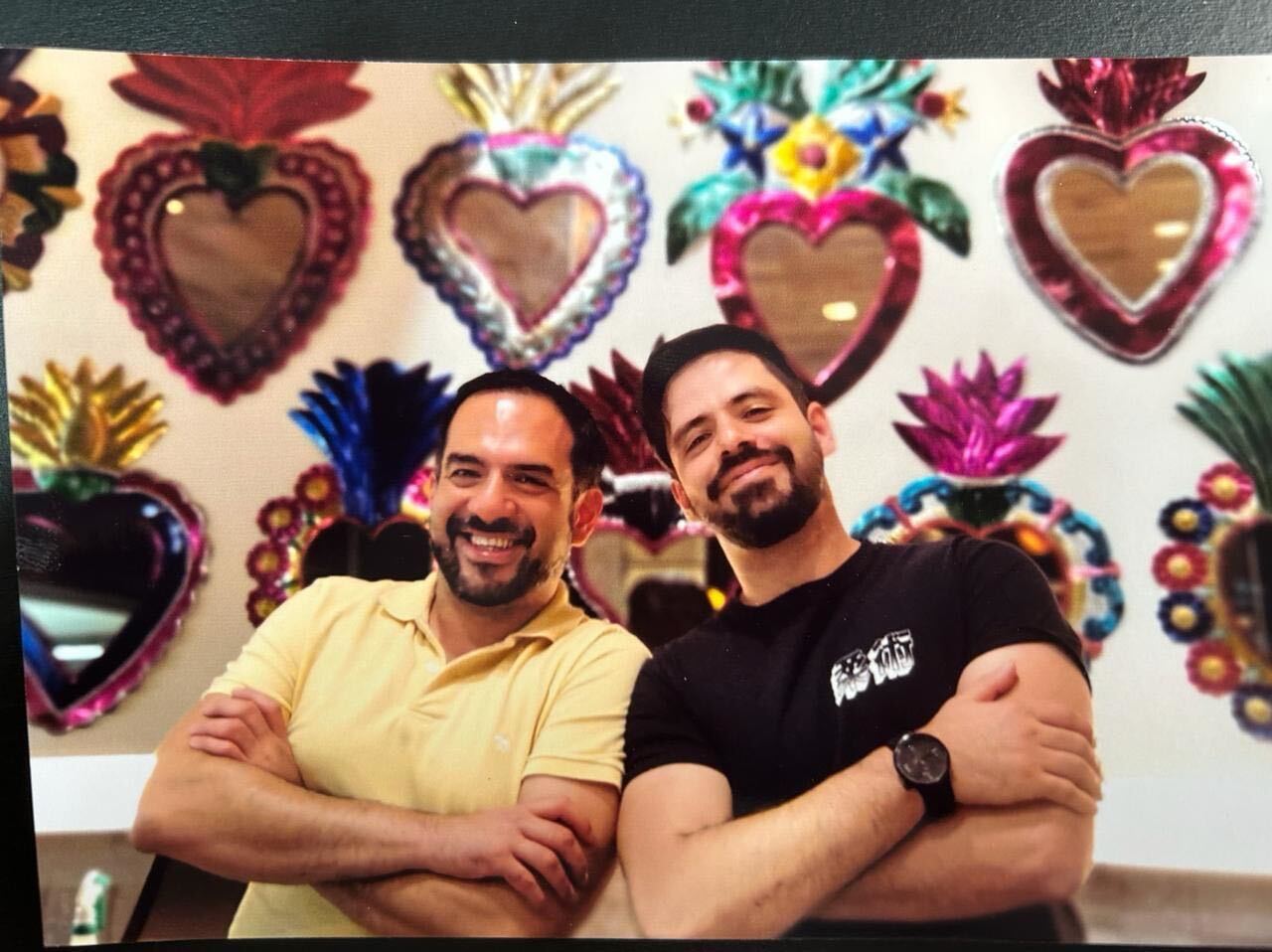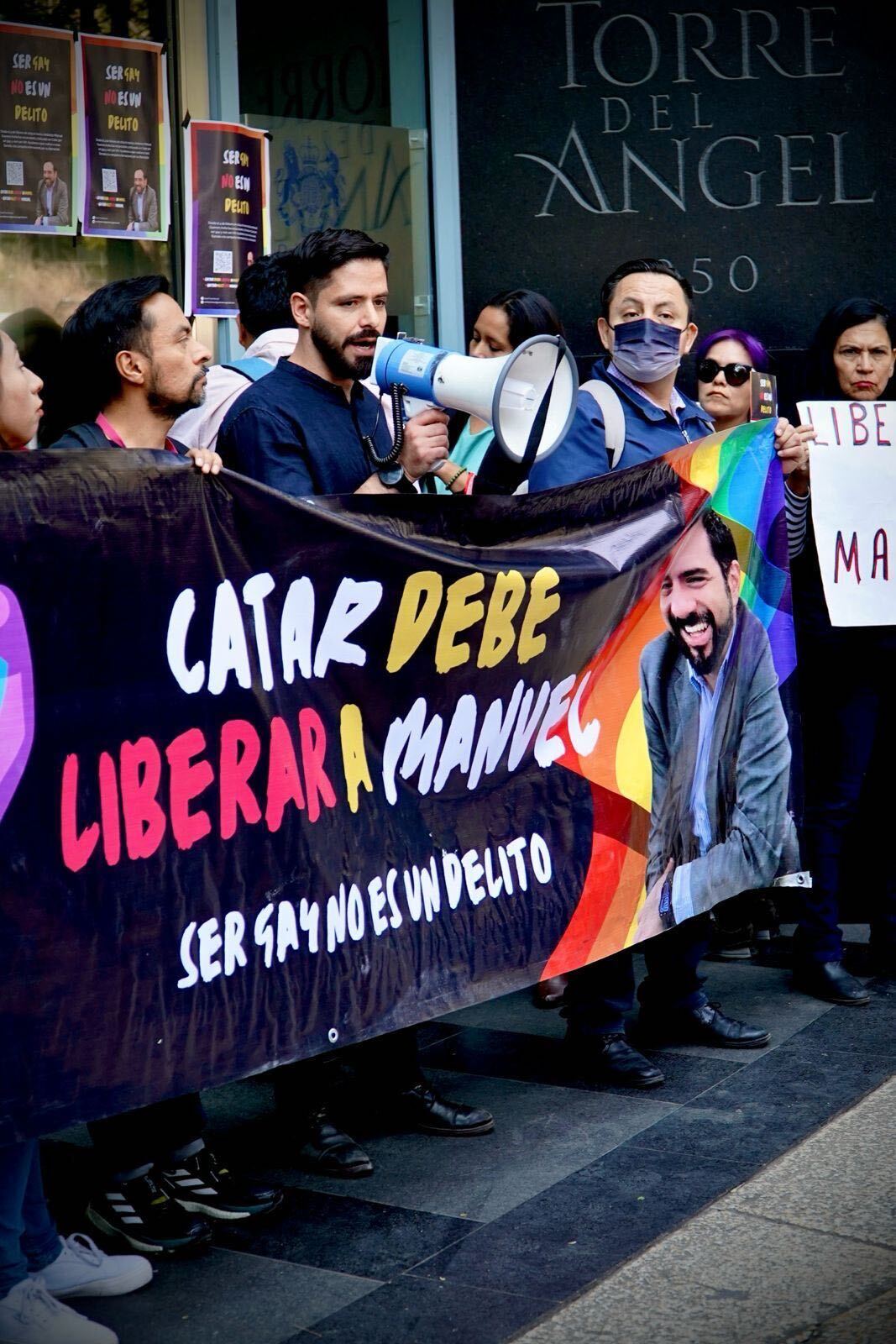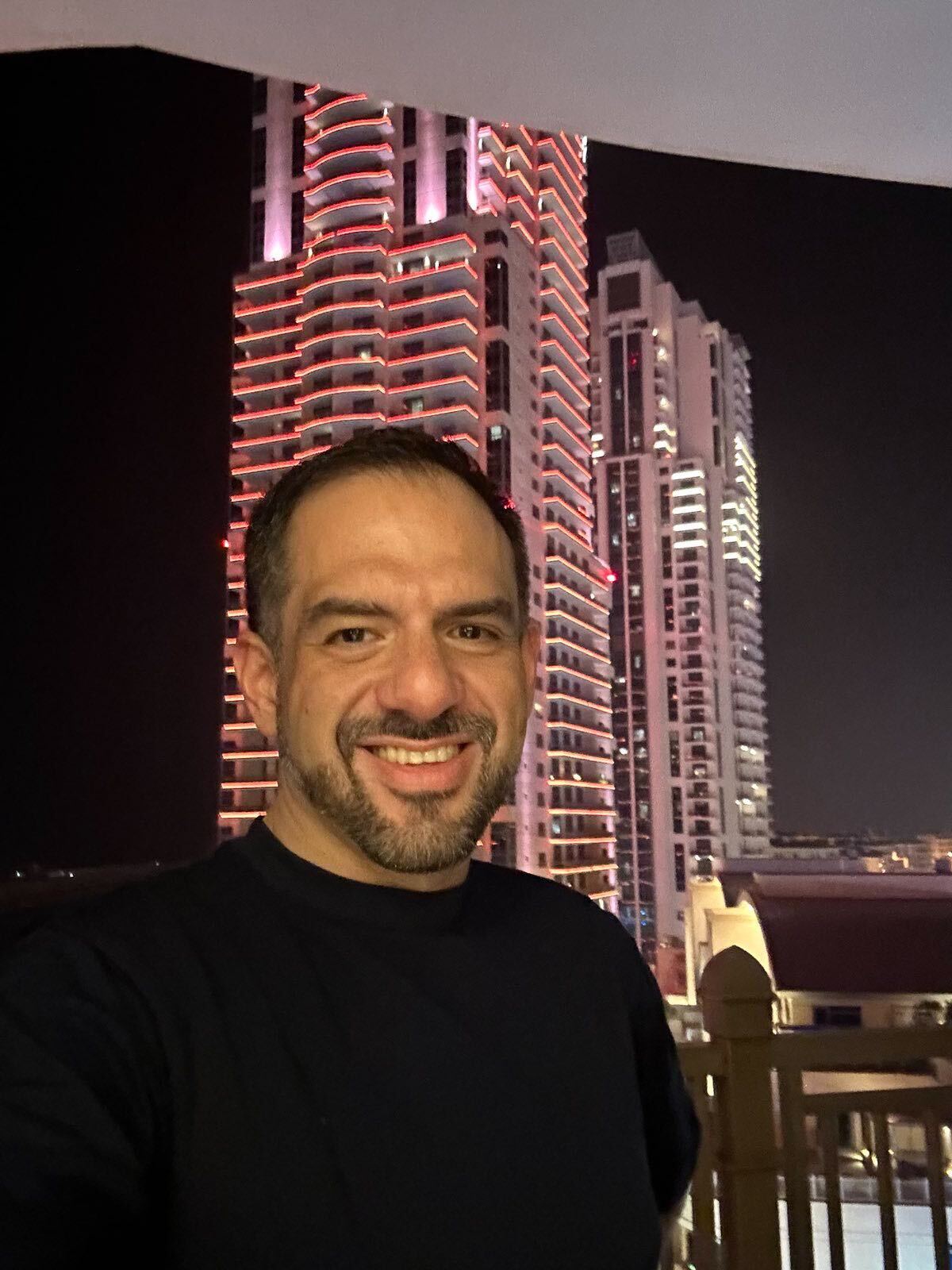British man ‘tortured by Qatari authorities after arrest in Grindr set-up faces deportation without justice’

A British-Mexican man who said he was tortured by Qatari authorities after being arrested in a Grindr sting is now facing deportation without justice.
Manuel Guerrero Aviña’s family also claimed his life was endangered as he was denied essential HIV medication when he was arbitrarily detained for more than six weeks in Qatar.
They said Manuel, 45, was finally charged 78 days after his arrest on 4 February with allegedly false drug charges, all of which the 45-year-old strongly denies.
Amnesty International, FairSquare and the National Aids Trust are among those demanding Manuel’s subsequent conviction be quashed, calling his trial before the Al Sadd Criminal Court in Doha “grossly unfair” and believing the Qatari authorities are using the case to stigmatise and criminalise LGBT+ people in a country known for its harsh laws against that community. James Lynch, co-director of FairSquare, and Deborah Gold, CEO of National Aids Trust, called on the UK government to step in.
Manuel, who used to live in Ealing in west London, was sentenced on 4 June to a suspended six-month prison term and a fine, according to his family – and they say he now faces being deported from Qatar without first getting justice.

Speaking to The Independent this week, Manuel’s brother Enrique, 39, said: “It’s very unfair because my brother is detained because he’s gay, he was tortured because of his sexual orientation and HIV-positive status.
“We are still fighting and we will fight for justice and for the absolute freedom of Manuel.”
Manuel, who has been a project manager for Qatar Airways in Doha for seven years, was reportedly arrested by plain-clothed security officials, shortly after he agreed to meet a man through the dating app Grindr.
Enrique, a human rights lawyer based in Mexico City, believes the online profile of the person his brother agreed to meet was fake and had been created by law-enforcement officials to entrap him.
Both Amnesty and Manuel’s family alleged the Qatari authorities detained Guerrero Aviña without charge for 44 days, interrogating him without a lawyer about his sexual relations, and subjecting him to ill-treatment on the basis of his sexual orientation and his HIV-positive status.
Enrique claimed Manuel was placed in solitary confinement and denied access to food and water for 15 hours a day. He alleged the authorities also refused to provide his brother with essential HIV medication for a month following his arrest, with the virus subsequently showing as present in his blood after previously being undetectable. Enrique also said security officials threatened to whip Manuel if he did not unlock his phone to identify other LGBT+ people.

When he travelled to see Manuel in detention, Enrique described his brother as fearful, disoriented and suffering from post-traumatic stress. “It was terrible because it was so unfair,” he said. “It was very dangerous.”
Both Amnesty and Manuel’s family also claimed security officials forced the 45-year-old to thumbprint a so-called confession in Arabic – which he did not understand. The human rights organisation said Manuel told a court that he denied all charges of possession of drugs and other drug-related offences six hours after signing the false confession.
They said Manuel repeatedly asked for a lawyer while in detention but was not able to obtain legal advice until 15 March, and that the authorities also denied him access to documents relating to his case for more than two months.
Aya Majzoub, Amnesty International Middle East and North Africa deputy director, said: “The Qatari authorities must overturn Mr Guerrero Aviña’s outrageous conviction.
“There are serious fears that Guerrero Aviña was targeted for his sexual orientation and was coerced into providing the authorities with information that they could use to pursue a wider crackdown on LGBTI individuals in Qatar.

“Qatar’s authorities must urgently end the discrimination and persecution of people based on their sexual orientation and gender identities, and repeal all laws that discriminate against LGBTI people.”
The human rights organisation said Qatar criminalises a range of same-sex consensual sexual acts and people found guilty can be jailed for up to seven years.
The Independent has approached the Qatari government for comment. A Qatari official told Amnesty on 24 March: “Mr Aviña was arrested for possession of illegal substances on his person and in his apartment … A drug test later came back positive.” They added: “Mr Aviña’s arrest and the subsequent investigation are related solely to the possession of illegal substances with the intent to supply.”
According to Manuel’s family, his arrest report states nothing illegal was found on his person, while they strongly maintain that law-enforcement officials planted drugs in their search of his apartment on 4 February. Amnesty also said the authorities have relied on a questionable handwritten urine test result.
Mr Lynch said: “The British government has a responsibility to make urgent representations to the Qatari government about the deeply unfair and discriminatory process their citizen has been subjected to.
“They must also press the Qatari authorities to stop the persecution of people based on their sexual orientation or gender identity.”
Ms Gold added: “We urge the British government to do all it can to ensure Manuel’s health, rights and wellbeing.”
A spokesperson for the UK Foreign, Commonwealth and Development Office (FCDO) said: “We are supporting a British man in Qatar and are in contact with his family.”
The FCDO said it takes all allegations of mistreatment seriously and will always offer to raise these with local authorities but cannot interfere in the judicial affairs of other countries.





